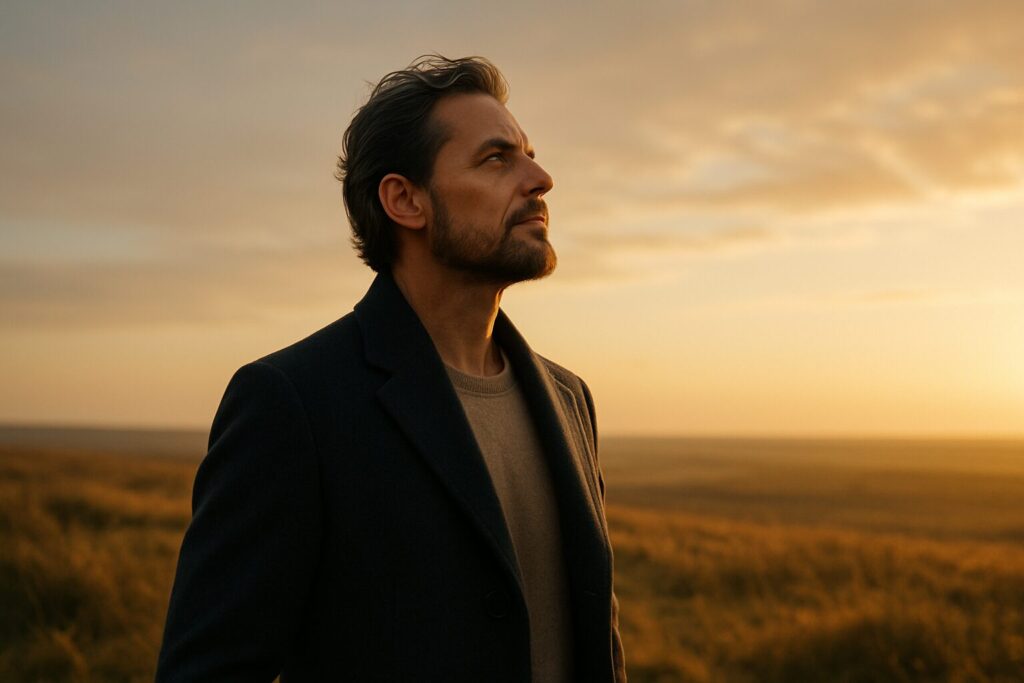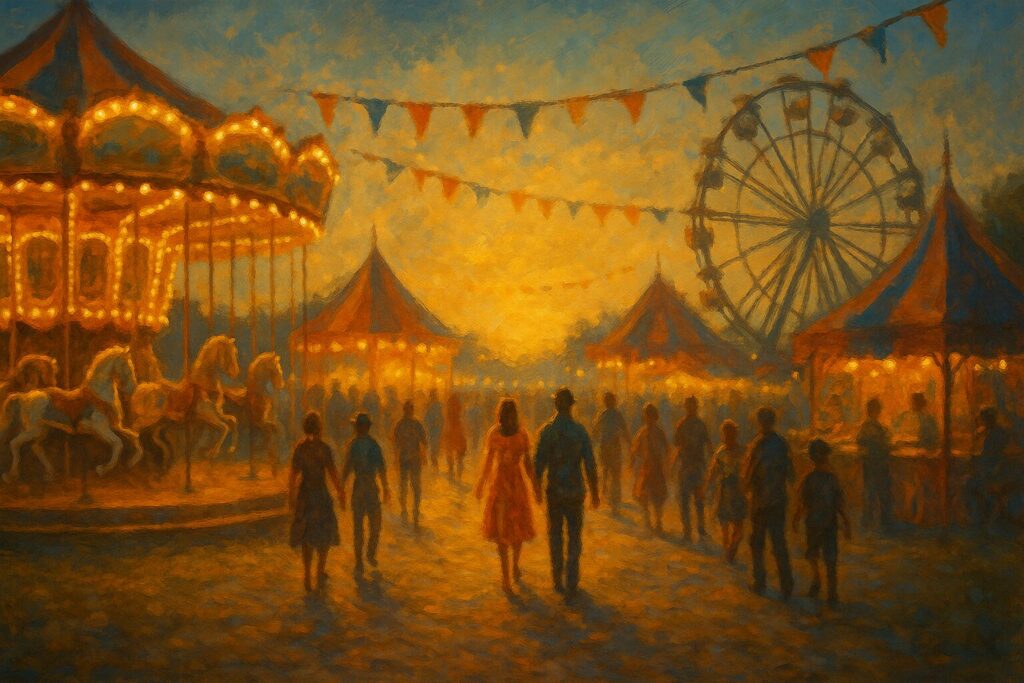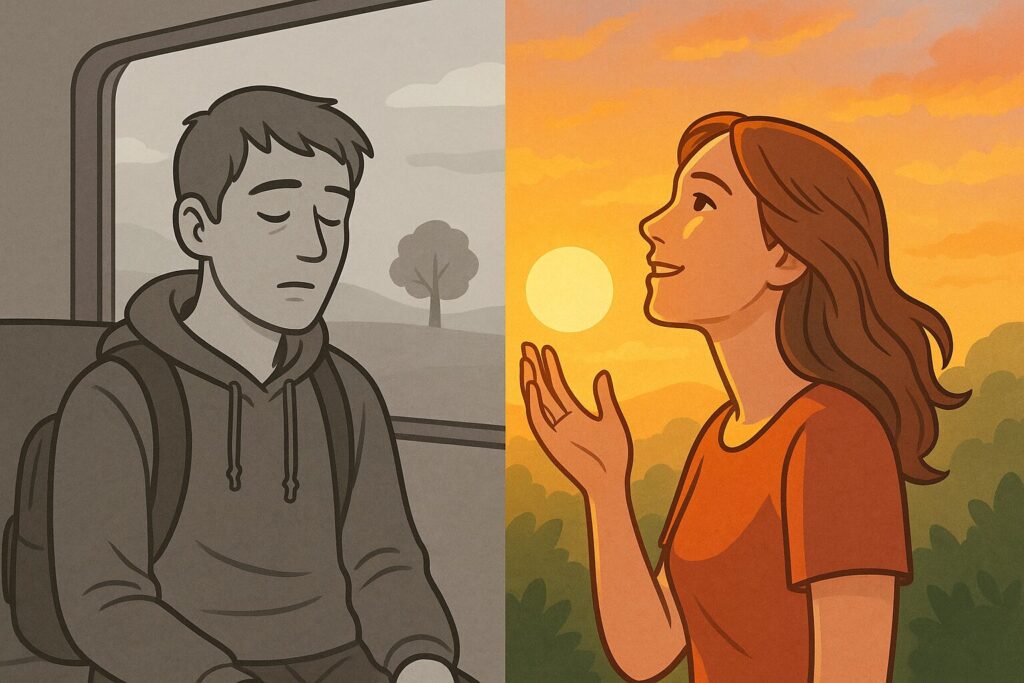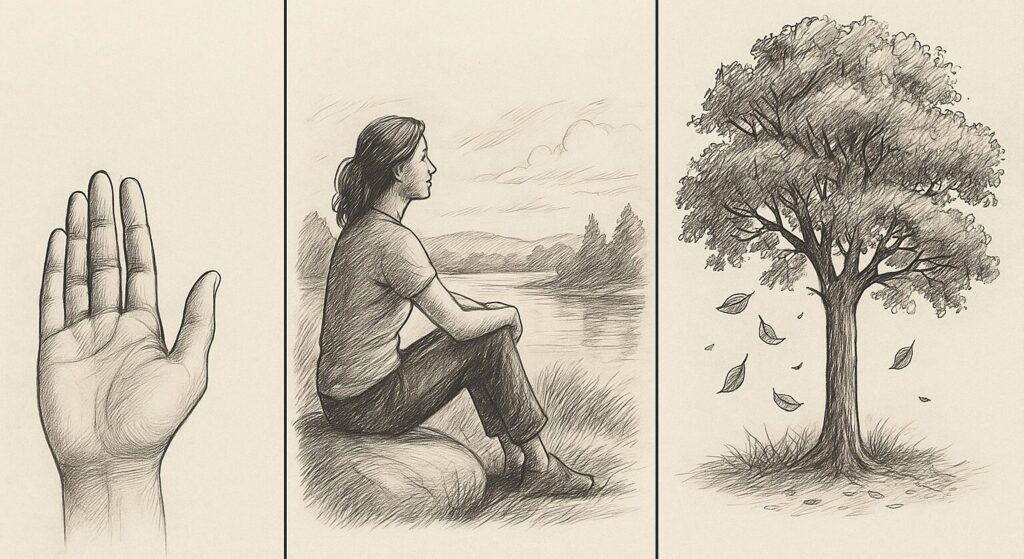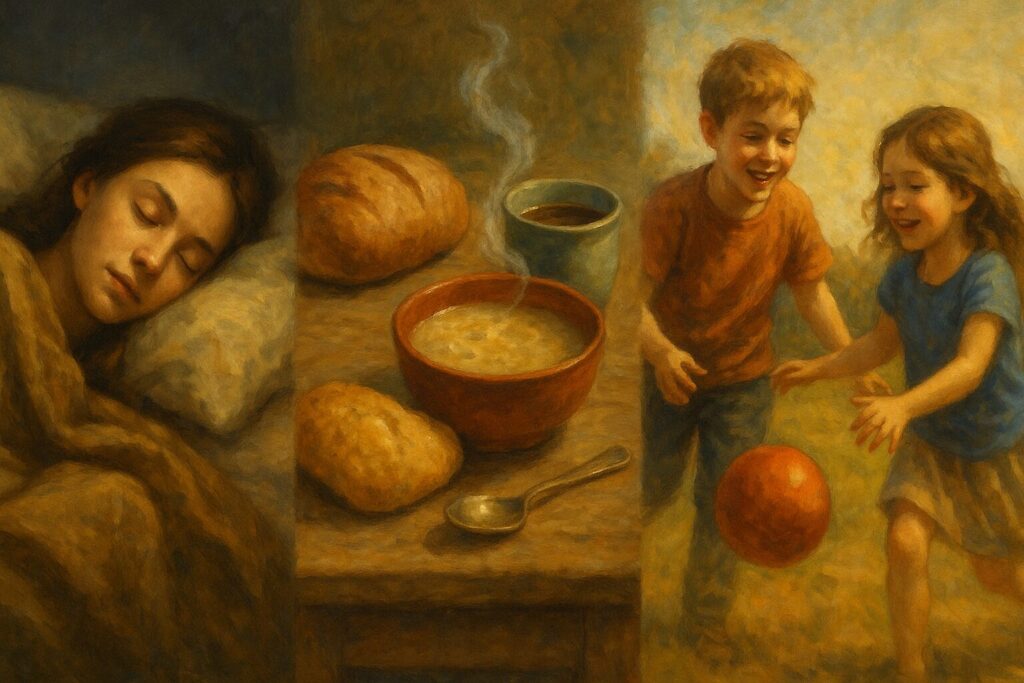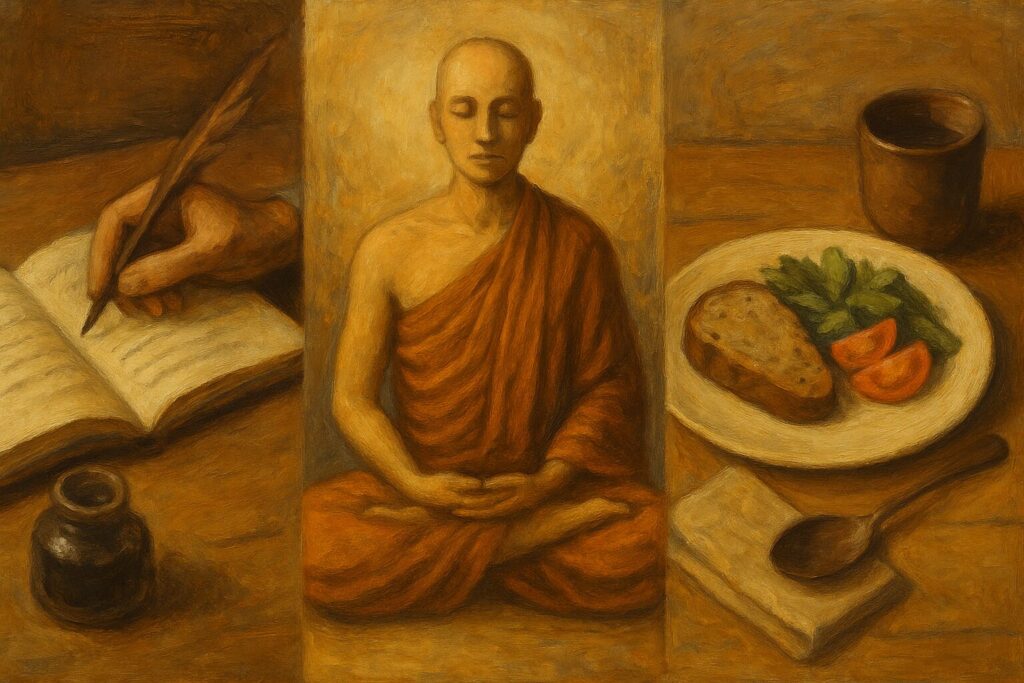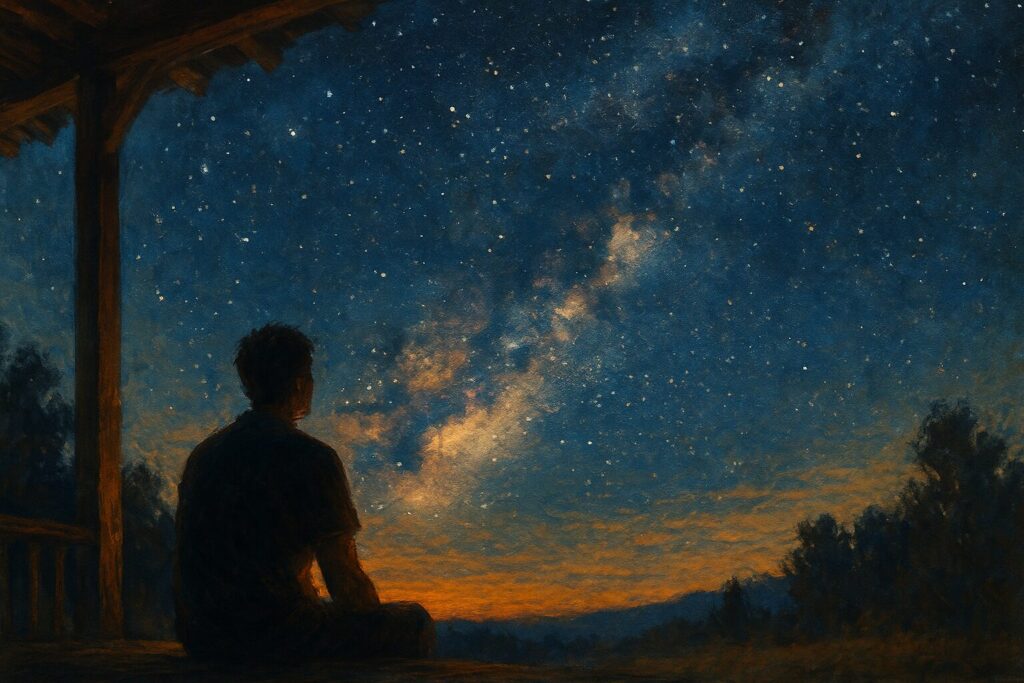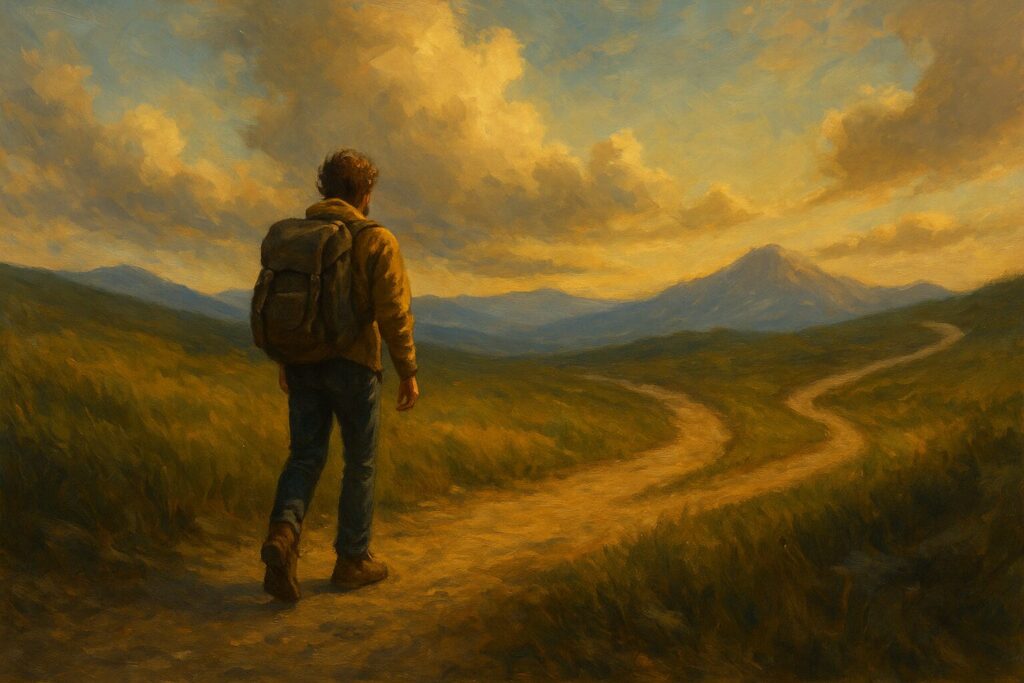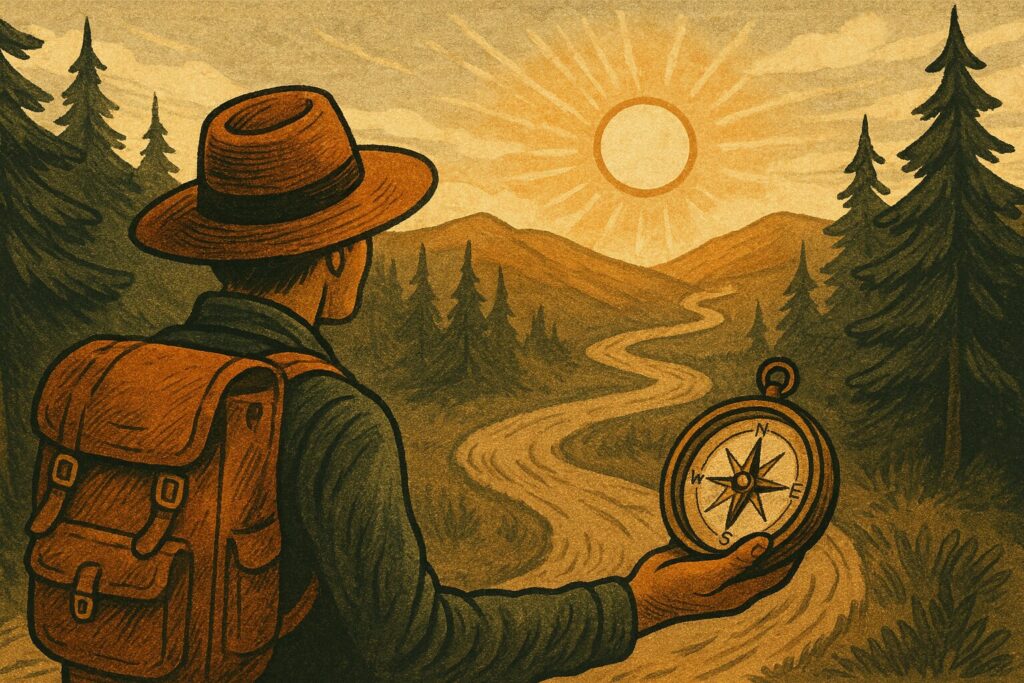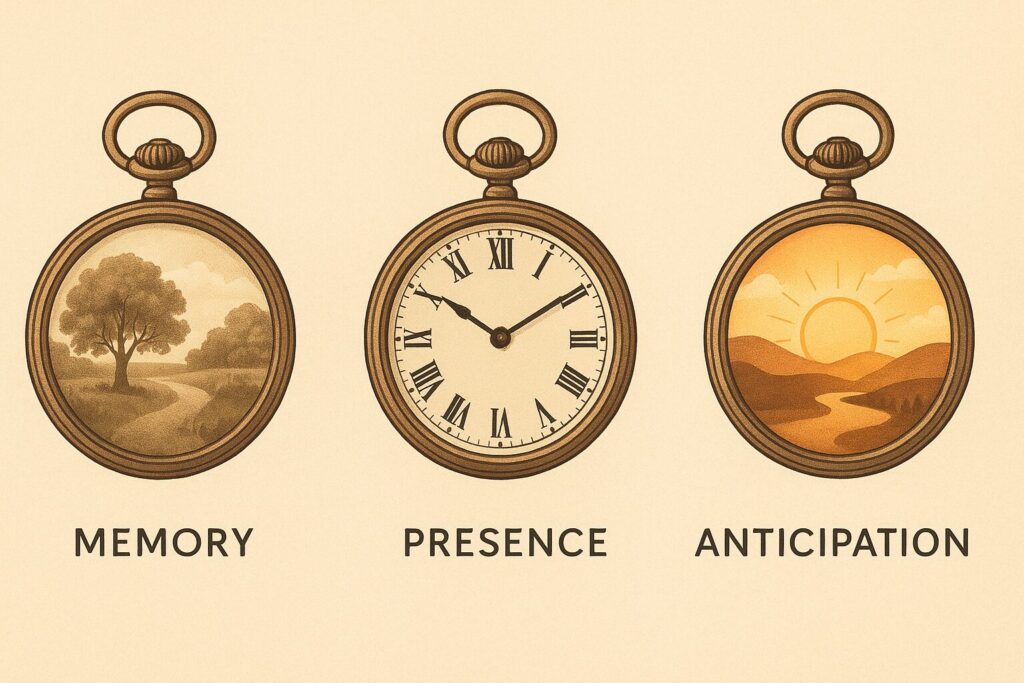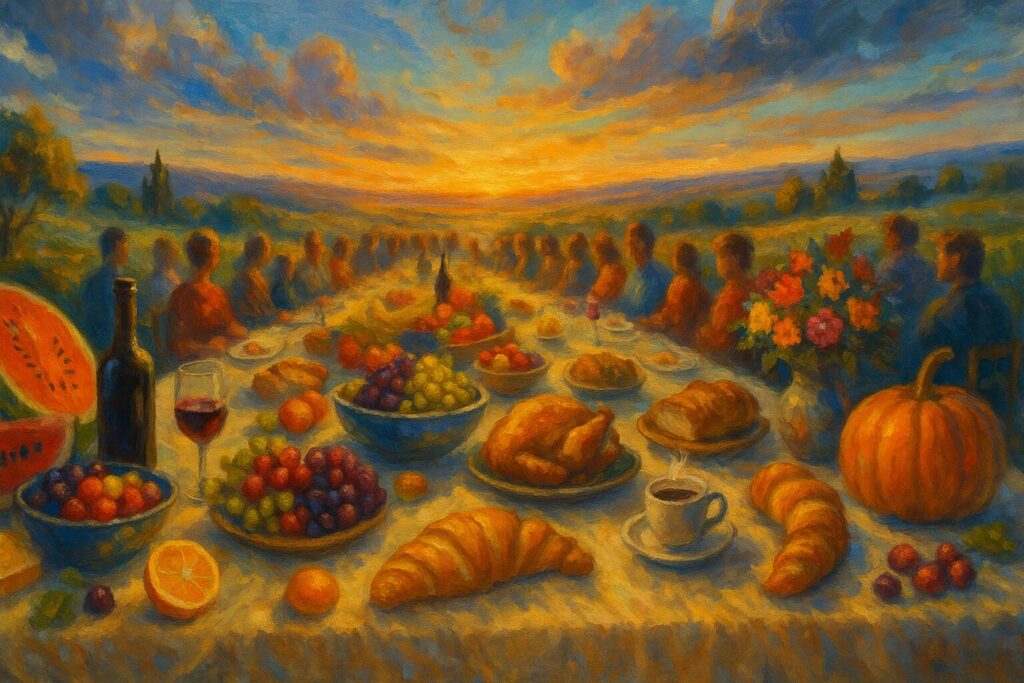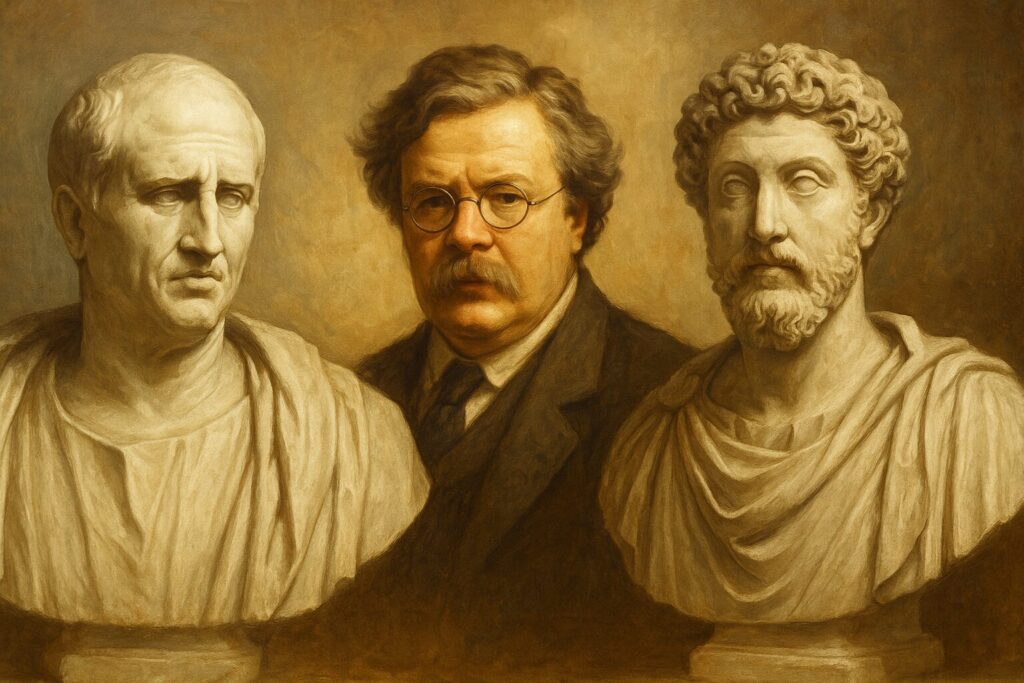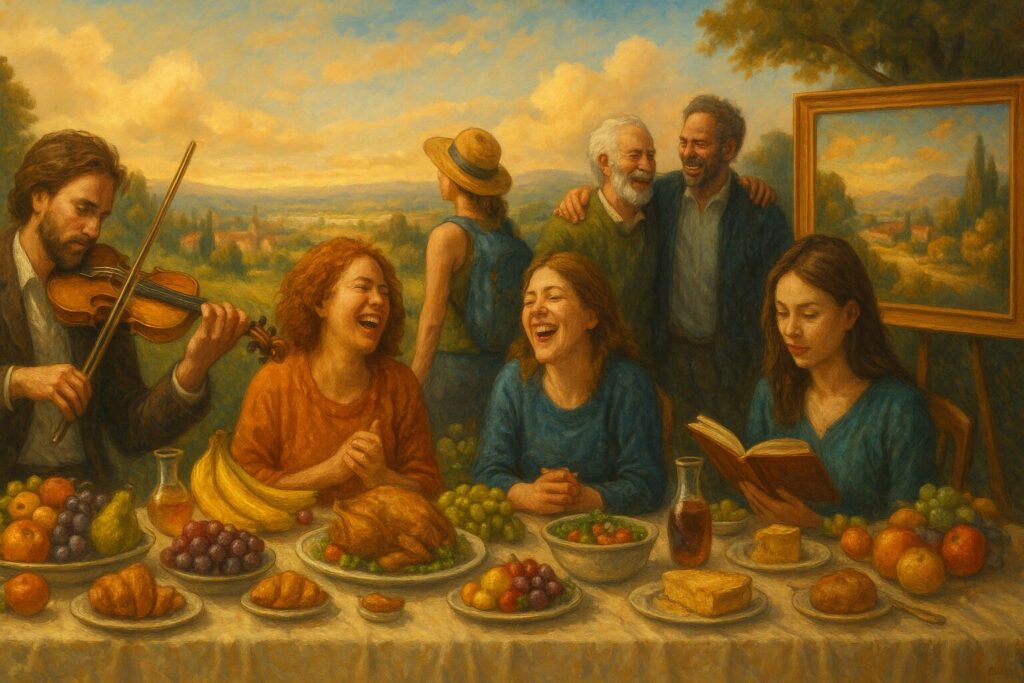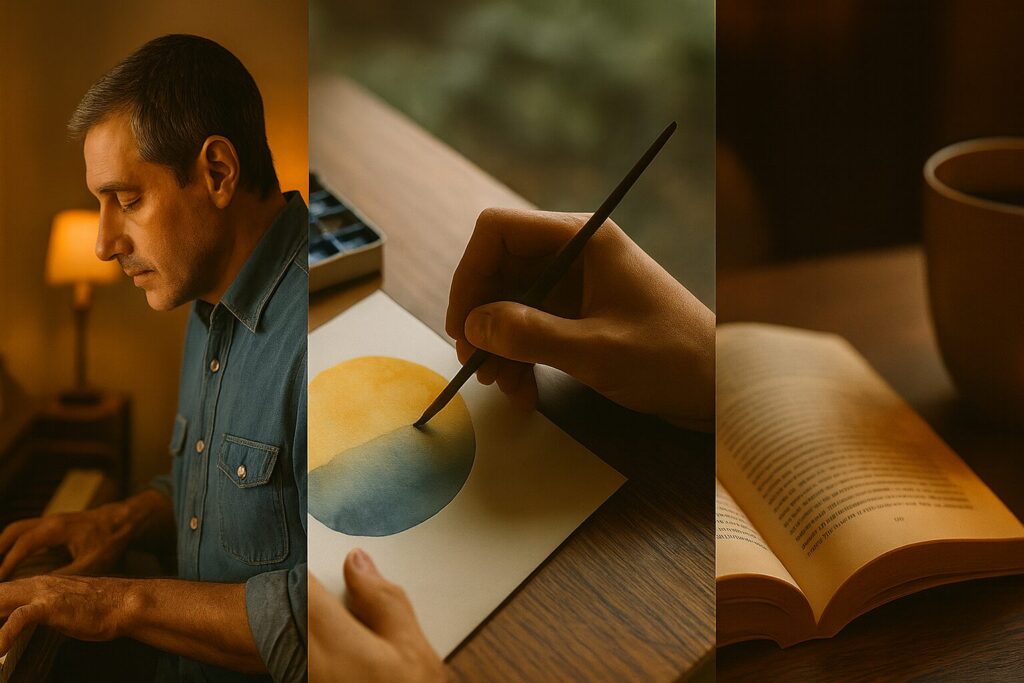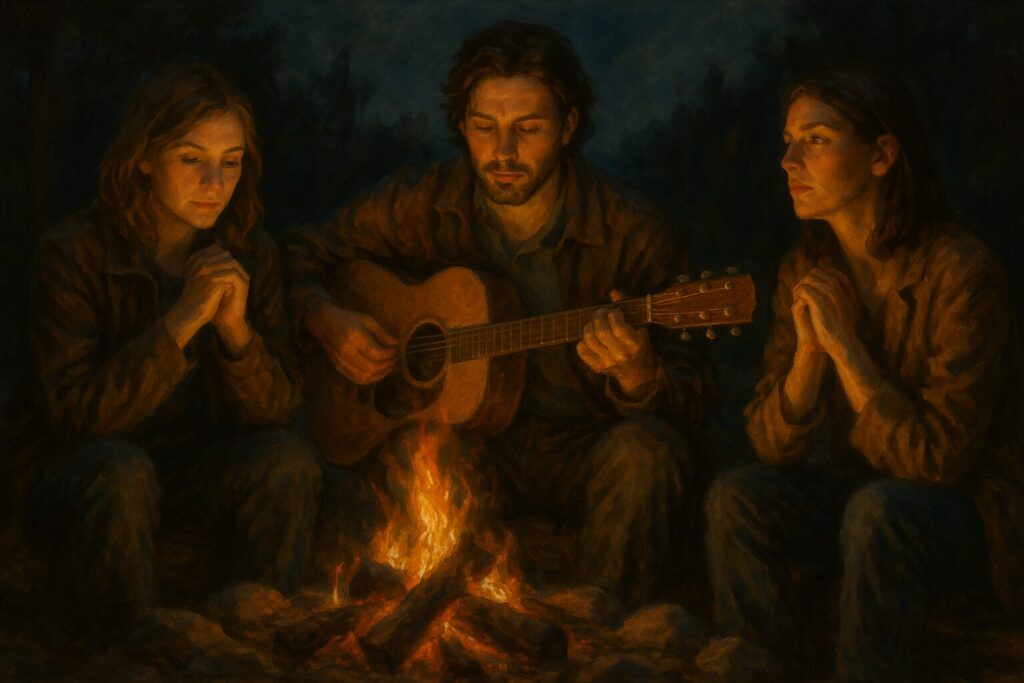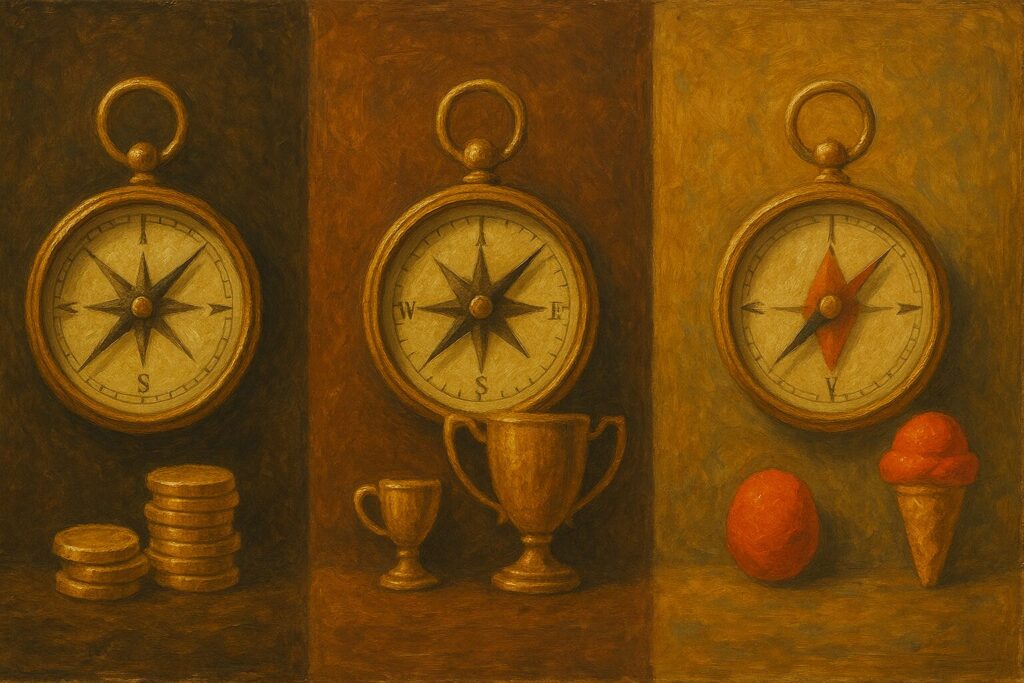Fulfillment
To be free is not merely to do as one pleases. That’s too shallow, too thin. True freedom carries a weight, a dignity. It means standing upright in the world as a being who is not owned, not directed, not erased.
Humans as Appreciators
Other creatures live. We get to live and know we are alive. That distinction may be the single greatest feature of being human. A squirrel gathers acorns. A hawk circles for prey. Both are exquisitely adapted to survive. But neither pauses to marvel at the turning of leaves, or to wonder at the vastness of the sky. Their lives are aimed at propagation. Ours are capable of appreciation.
The Balance of Sanity and Wonder
Life demands two great skills. The first is to remain sane in the face of hardship. The second is to remain awake to wonder in the midst of ordinary days. One without the other is incomplete. Sanity without wonder becomes survival — a gray endurance stripped of joy. Wonder without sanity becomes naïveté — a fragile bliss easily shattered.
A Carnival of Wonders
Life is not one thing. It is a bounty of human creation, a call to adventure, and a tapestry of everyday delights. To be alive is to have access to all of it — to wander the carnival, to answer the invitation, to taste the simple joys that thread through our days.
Baseline Gratitude
If you’re reading this, you’ve already won. You’ve already beaten the cosmic odds to exist as a conscious, breathing human being on this improbable planet. Out of all the stardust and lifeless rock scattered across the universe, you get a ticket to ride. You get to taste, to feel, to wonder, to choose. You’ve been given the jackpot of jackpots: human life.
Sanity and Appreciation
Life is not easy. Even the most fortunate among us face storms of stress, fatigue, grief, and uncertainty. To live well is not to dodge hardship, but to remain sane enough within it to keep seeing the gift of existence.
Anesthetic vs. Aesthetic Living
There are two ways of moving through life. One is anesthetic. The other is aesthetic. The difference may be the difference between merely surviving your days and actually living them.
Three Quotes on Sanity and Renewal
When modern life frays us, it helps to remember: humans have always struggled to stay sane, always sought ways to renew the spirit. Across centuries, thinkers have left us words that still steady us today. Here are three such voices — Seneca, Thoreau, and Rumi — each offering a fragment of guidance for keeping our core intact so that we can continue to savor existence.
Live in a Way That Honors Existence
Gratitude is a powerful starting point, but Rebecca Goldstein pushes us further. She reminds us that awareness of life’s gift comes with a responsibility: to live in a way that honors it. Not perfectly. Not flawlessly. But earnestly. To live in such a way that we can say, I did not waste what I was given.
The Gift of Sentiment
To be human is to feel. We laugh, we weep, we tremble, we rage. And beneath all those reactions lies sentiment — the recognition that something matters. Without sentiment, life may be easier, but it is also emptier. Meaning is born not from calculation but from care. A life of pure detachment would be efficient, perhaps, but it would be hollow.
A Handful of Everyday Wonders
Sleep restores us and gives us the bonus world of dreams. Food sustains us and turns survival into art. Play lightens us, liberates us, and connects us back to wonder. None of these are exotic. They’re woven into ordinary days. And yet, when we pay attention, they reveal the extraordinariness of being alive.
Invulnerability and Its Consequences
We live in a culture that worships strength. We admire the person who never flinches, never cries, never admits weakness. And when we’re hurting, we may envy them. If only I could be like that, we think. Untouched. Invulnerable. But invulnerability comes at a cost. When we build walls against pain, we build them against joy too. When we numb our capacity for hurt, we also numb our capacity for meaning.
Three Ancient Practices for Sanity
When life feels overwhelming, we often turn to the latest trends for relief — new apps, new hacks, new therapies. Yet across centuries and cultures, people have always faced the same question: How do we stay sane enough to love life?
The Miracle of Being Human
What does it mean to be human? Not in the biological sense — bones, blood, brain — but in the lived sense. In the way it feels to inhabit this brief, improbable window of awareness. To be human is to wake each morning into a world that did not have to include us, and yet does. It is to step into a story already underway and know that, against all odds, we get to add our verse.
Independence and Mortality
Independence is not just a lifestyle preference. It is a way of honoring the gift of existence itself. When we recognize that life is finite — that our time here is brief, unrepeatable, fragile — the question sharpens: Will I spend this one chance as myself, or as an echo of others’ expectations?
Becoming Ourselves
We arrive in the world raw, unformed, bewildered. A baby doesn’t know who it is. A child doesn’t yet know what will matter. Even in youth, identity feels like mist: here for a moment, then shifting. And yet, across the decades, something steady persists — the sense that we are slowly becoming. We are sculptors shaping marble we can’t fully see, discovering the figure only as we chip away.
The Joy of a Life Well-Oriented
Life is brief. Time is precious. Without orientation, we risk wasting it on false compasses and empty pursuits. But with orientation, every day can contribute to fulfillment.
The Treasures of Time
Memory roots us in story. Presence awakens us to wonder. Anticipation draws us forward in hope. Together, they make time not an enemy but a gift. We are the rare creatures who get to live across all three dimensions at once, carrying the past, inhabiting the present, and leaning toward the future.
A Feast of Living
What a banquet we’ve been invited to. The table stretches endlessly: oceans shimmering with silver fish, forests brimming with birdsong, deserts whispering their secrets in shifting dunes. Look closer, and the spread is more intimate still: a ripe peach, a handwritten letter, the comfort of worn sheets after a long day. Life is a feast, and we are the guests.
Count Each Day as Gain
The Roman poet Horace knew something we often forget: life isn’t guaranteed. Not tomorrow, not even the next hour. Every day that arrives is a gift. We do our best to steward and prolong that gift, but each day is still a privilege, and we should do our best to appreciate it as such.
A Meditation on Rest
Rest is not absence. It’s presence of another kind. The slowing of the drum so the melody can be heard. The white space around the brushstroke that lets the painting breathe. The silence between notes that turns noise into music.
Three Windows into Gratitude
Gratitude is as old as human reflection. Across centuries and cultures, thinkers have returned to it as one of life’s essential orientations. Not a nicety, not an afterthought — but a compass for how to live. Here are three voices — a Roman statesman, a British essayist, and a Stoic emperor — each pointing us toward the same truth: gratitude is not peripheral; it is central.
Following Your Fascinations
Selfhood doesn’t arrive as a thunderclap of destiny. It emerges step by step, as you honor the fascinations that pull you. Each spark you follow shapes the map of who you are becoming.
The Abundance of Trying
In trying, we discover something larger than just results: we discover abundance. Life overflows with chances to reach, to create, to risk, to love. Some call it profusion, others call it bounty, but the meaning is the same: effort itself is a richness we get to experience. The act of attempting — even when imperfect, even when uncertain — is one of life’s greatest privileges. To strive toward something beyond survival is how we honor the miracle of existence.
Three Daily Practices for Fulfillment
Life is too brief to complicate. The path to fulfillment is not hidden in philosophy textbooks or locked away in monasteries. It can begin with three simple practices: yes, savor, remember. Say yes to life. Savor what’s given. Remember it won’t last. Do these daily, and you will have seized not just the day, but the gift of existence itself.
Life’s Feast of Experience
Life is not stingy. It lays out a table so full of flavors, colors, sounds, and sensations that one lifetime is not enough to sample them all. We may struggle, we may suffer, but even in hardship, the world keeps handing us delights.
Tools for Shaking Off Numbness
We go through our days dulled by routine, lulled by sameness, anesthetized by the narcotic of familiarity. The gift of life—this once-in-eternity chance to exist—becomes something we sleepwalk through. The good news? Numbness is not permanent. It can be interrupted. It can be shaken off. You can step back into your life with fresh eyes and a sense of wonder.
Soul Therapy
Life wears us thin. Worries fray us, routines numb us, losses bruise us. Left alone with only pressure and demand, we shatter. But we are not left alone. Human beings, from the dawn of history, have discovered a thousand ways to restore ourselves — ways of tending our soul.
The Practices of Appreciation
Gratitude is more than a passing feeling. It’s a way of seeing, and like any skill, it can be trained. Without practice, appreciation slips away; life fades into background noise. With practice, we stay awake to the wonder of being alive.
Three Takes on Independence
Life is short, and conformity is tempting. But mortality clarifies: there is no rehearsal. You only get this one chance. To waste it on mimicry is to waste it altogether. Trust thyself. Live deliberately. Will yourself — and others — to be free. Altogether, these lead you, and those around you, to a life more fully lived.
Three Practices for Finding Ourselves
Finding ourselves isn’t a one-time revelation. It’s a rhythm: solitude, risk, story. Again and again. Don’t wait for lightning. Begin with what’s near: a walk, a brave step, a few honest sentences.
Risks Worth Taking
The risks worth taking are not reckless stunts or shallow thrills. They are the risks that enlarge us: to love, to create, to change. Yes, they expose us to pain. But they also open us to meaning. And when we look back, it won’t be the guarded moments we remember. It will be the leaps.
The Triad of False Compasses
False compasses tempt us because they are easy to measure. Bank balances, applause, comfort levels — these give quick feedback. But quick feedback is not the same as true direction.
Pride and Mojo
There is a kind of joy that doesn’t come from sunsets, or music, or even love. It comes from something quieter: the simple satisfaction of feeling at home in your own skin. It’s the moment you stand a little taller because you did what you said you would do. It’s the glow of competence after solving a problem. It’s the inner warmth of knowing you’re living in line with your values.
